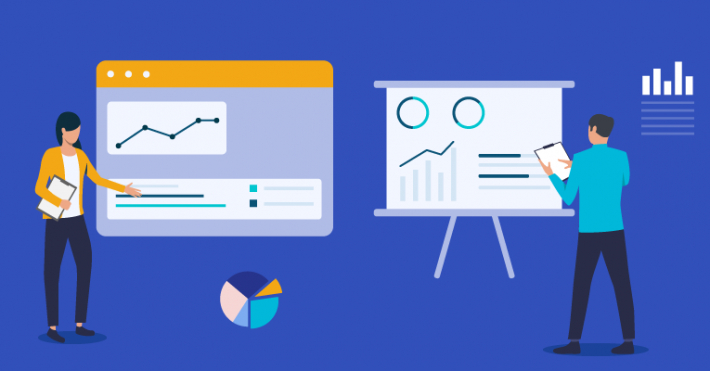Are you considering a career change into data science? Do you know the difference between data analyst skills and data scientist skills? In this blog post, we will outline the key skills required for each role, so you can decide which path is best for you. We will also provide resources to help you learn more about each field. So, whether you are just starting out in your data career or are contemplating a switch, read on to find out what makes a data analyst and a data scientist.
What Exactly are these Two Professions?
Data scientist is nowadays a very popular profession. It is known as the dream job of many due to the broad spectrum of required skill-sets and creativity on the job.
Data Analyst skills are more specific than data science; they involve more straightforward mathematical analysis. Data analysts work more closely with organizing and understanding big data, while data scientists focus on more statistical or computational analysis.
What Does A Data Analyst Do?
A Data Analyst primarily works with vast amounts of big data. You can consider Big Data to be companies’ digital assets – information about customers, products, sales, etc., stored on computers for processing and analysis.
As Big Data continues to grow exponentially every year, it becomes necessary for businesses to have skilled professionals who can interpret the unstructured data gathered from all over the internet and process it into useful insights that help in decision-making. That’s where Data Analysts come into play.
The data analyst job also involves data mining to discover useful hidden patterns and information from the analyzed data. To give you a better understanding – think of it as finding out that there have been thousands of clicks on a specific link from a Google search result page. Without Data Analysts, this could go unnoticed as the number of clicks is not what one might consider as being significant or noteworthy at first glance.
What Does a Data Scientist Do?
A data scientist is someone good at extracting knowledge from data. However, the meaning of this definition can vary depending on the context in which it is used.
When hiring for a position that requires skills related to data science, some companies require candidates to have certain academic degrees (e.g., Ph.D.) and work experience in academia or industry. Other companies might not be as specific about what qualifications are needed for the job but rather look for general soft skills such as curiosity and creativity. Indications that these soft skills are important include phrases like “ability to think outside the box” and “think analytically.”
When discussing data science, it’s often more appropriate to talk about data science as a field rather than about data scientists themselves. That is because it’s very common for people to refer to themselves as ‘data scientists’ even though they don’t perform true data science work.
Differences in Roles: Data Analyst vs Data Scientist Skills
Data analysts use data mining and machine learning to extract actionable insights from the data, whereas data scientists extract insights that help in decision-making and predictions.
Data scientists might deal with more complex algorithms and code than a typical data analyst, but their focus is different: “Data engineers build the databases and do the infrastructure, data analysts understand what questions we need to be asking and how to analyze them, while data scientists focus on more complex algorithms,” says DJ Patil, formerly a data scientist at Greylock Partners and the co-creator of Data Science Process.
However, there is a big overlap between these two professions: you can find both titles in one company depending on the company or type of project. The modern world calls for people who have experience from several types of roles rather than just having experience from one profession.
In that sense, if companies want to hire only a so-called ‘pure’ data analyst or pure data scientist, it is possible, but they will have fewer available candidates with specific skills. If companies are more flexible, they can hire people who have knowledge from other professions.
Both data analysts and data scientists should be able to present their findings in an understandable way for their audience (usually management).
Main Differences between a Data Analyst Skills and a Data Scientist Skills: (Data Analyst vs. Data Scientist)
Let’s know the in detailed differences between both the professions.
Data Analyst:
Data analysts are best known for working with large data sets, finding trends, and reporting on findings. Statistical analysis of big data sets looks for patterns and relationships among input variables to help make effective business decisions. It is similar to what a research scientist does in a laboratory in many ways.
Many data analysts use business intelligence software, a subset of business analytics tools that enable users to analyze data and gain insights. They work in a variety of industries, including finance, healthcare, social networking sites, and updated technology companies. Data analysts must have a strong understanding of statistical concepts such as probability and hypothesis testing. Data analysts should also be proficient with computer programming languages such as SAS or SPSS and database management systems like SQL.
Corporations highly value their work, and the Bureau of Labor Statistics predicts demand for data analysis will increase 37 percent between now and 2022.
Data Scientist:
A data scientist is a professional who works to turn data into information. To do this, they use advanced analytical techniques to narrow down the most important parts of a project and make them as clear and accurate as possible. Generally, these professionals will work only with the data sets that are relevant to their research project and perform statistical analysis on those sets. They can be found in almost all industries, including finance, healthcare, engineering, and more.
Data scientists must have a strong understanding of statistics as well as how to perform statistical analysis on data sets. They need an in-depth knowledge of machine learning and predictive analytics techniques such as clustering, regression, or decision trees. Data scientists should also be proficient with computer programming languages such as R or Python and tools like Hadoop and MapReduce.
The Bureau of Labor Statistics predicts demand for data scientists will increase by 28 percent between now and 2022.
Conclusion
Data Analysts and Data Scientists are both integral to the success of many businesses, but their skill sets do differ. A data analyst is responsible for analyzing large amounts of raw information to make decisions based on what they find, whereas a data scientist uses that same kind of analysis plus predictive modeling techniques (including machine learning) to help businesses predict future outcomes or more accurately measure customer behavior. If you need assistance determining which one may be best suited for your company’s needs, please get in touch with us.



